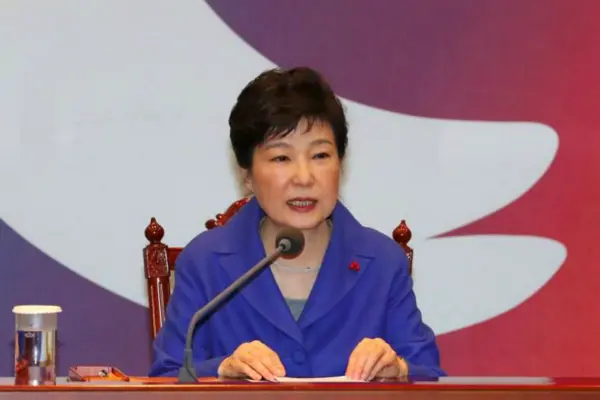Politics in Sri Lanka is taking strange turns.For nearly a decade Sri Lanka was under an all-powerful president, an imposing man who ended a three decade war and carried out massive infrastructure projects, resulting in five years of 7 percent growth.
Despite criticism of growing authoritarianism and nepotism, it seemed former President Mahinda Rajapaksa was well on his way to re-writing Sri Lanka’s history. Using the massive wave of support he unleased after winning the war against separatist Tamil Tigers in 2009, he amended the Constitution, rolling back term limits for the head of State.
He appointed a brother as a Defense Secretary, another was Economic Minister and a third was Speaker of parliament. Rajapaksa’s eldest son was a parliamentarian and scores of other relatives were given plum government positions. Corruption, insist the Opposition, reached “unprecedented” levels under him.
In November Rajapaksa called for snap presidential elections to grant himself an unprecedented third term in power.
He seemed destined to yet another victory; that was until his former cabinet member Maithripala Sirisena defected to the opposition as their candidate, sparking one of the most remarkable triumphs of democracy seen in modern times.
Against all odds the Opposition gathered together everyone from Marxist parties to minorities, battling the Rajapaksa publicity juggernaut with meager resources. In many areas there wasn’t even a poster to denote Sirisena’s campaign. Yet on voting day over 15 million people flocked to thousands of polling booths scattered around the country, as it later emerged, nearly two thirds of them joined to end Rajapaksa rule.
Rajapaksa in the early hours of 9 January conceded defeat and left his official residence peacefully. His legacy will remain mixed for most Sri Lankans, especially since it later emerged that he had attempted to use the army and police to stay in power “by force.” The Opposition allegations are presently being investigated but for many it is now time to make sure so much power will never be allowed to be centralized to one family ever again.
Sri Lanka’s newly elected president Maithripala Sirisena swore in a 27 member Cabinet this week that will see the country transition from an executive presidency to a parliamentary system with a prime minister at its head. All in 100 days.
The 100-day plan, which was launched just weeks ahead of the presidential election on 8 January aims to change the Constitution to trim powers of the executive presidency and establish independent commissions to empower police, elections commission and public service, among others.
The key point in this is to drastically reduce corruption that critics of former President Mahinda Rajapaksa insisted was allowed to run rampant under his decade-long rule that began in 2005.
Sirisena, who has already stated he will only serve one term as president, made clear the challenges ahead for the new Cabinet.
Once the three month period is over Sirisena has pledged to dissolve parliament with a permanent Cabinet being formed afterwards by the new prime minister who would be the leader from the party that wins the most number of seats.
“You must work to win the respect of the people. I know that some of you may not be happy with the positions you have been given but understand all power is transitory. Do not be greedy for power,” he told his new cabinet.
“I also warn you that if anyone is ever caught engaging in corruption I will take the toughest measures of the law against them, whether they be cabinet minister, state minister or deputy minister.”
Sirisena’s coalition government aims to gain a two-thirds majority in Parliament and trim executive powers in the coming weeks. Early indications are this is possible with minority Tamil and Muslim parties’ already pledging support.
But he faces a significant challenge in keeping his unwieldy coalition of nationalist and minority parties on the same trajectory as he battles with the deadline of 100 days to change president powers and call for a parliamentary election at the end of April.
He also has to restore the independence of the Judiciary and devolve power to the northern part of the country in accordance with the demands of the Tamil minority.
A thorny issue that was bottlenecked by the Rajapaksa government who insisted it would lead to the formation of a separate state. Main minority party, the Tamil National Alliance (TNA), has said it has “faith” in Sirisena but discussions are yet to officially kick off.
The new president will also have to deal with the United Nations Human Rights Council (UNHRC), which has initiated an investigation into alleged human rights violations during the last phase of Sri Lanka’s war with the report to be presented at its sessions in March.
So far the Sri Lankan Government under Rajapaksa had declined to cooperate with the investigation criticizing it as “deeply flawed.”
However, the 100-day manifesto of Sirisena has pledged a local tribunal mechanism much like the South African Truth and Reconciliation Commission. But implementing a credible system and managing power devolution will prove to be extremely difficult, especially given the nature of the coalition.
Early sentiments from the international community and Sri Lankans alike to the presidential change have been positive. Whether they remain so will be the greatest test for the island’s new leaders and its rejuvenated democracy.
APD writer
Uditha Jayasinghe
 简体中文
简体中文



